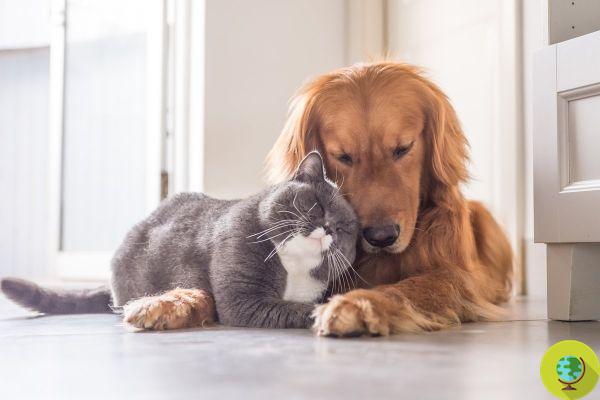
The revolutionary theory suggests that emotions and mood underlie the behavior of animals, just like in humans
Those who live with animals have been supporting this for some time but now new research conducted by scientists from the School of Biological Sciences at Queen's University in Belfast suggests that animals experience emotions very similar to those of humans, exhibiting positive moods when " they win ”and negative when they“ lose ”.
Until now, researchers have focused on how animals evaluate the value of a resource and the fighting prowess of their opponent. The new article argues that these assessments contribute to the emotional state of animals and these emotions guide their behavior.
Scientists looked at previous studies based on the example of competing animals for resources or companions. So they found that just as depressed or anxious humans are more pessimistic about the future, animals that lose fights are in a more negative emotional state, it's like they are more pessimistic about being able to win, and therefore are less. willing to engage in future struggles.
Andrew Crump, postdoctoral researcher from the School of Biological Sciences at Queen's and lead author of the paper, explained:
“Human emotions affect unrelated cognition and behavior. For example, people rate their overall life satisfaction higher on sunny days than on rainy days. We found that animals' emotions also affect unrelated cognition and behavior. For example, animals that won a competition experienced a more positive mood and expected fewer predators in their environment. Likewise, animals that lost a competition experienced negative emotions and took part in fewer challenges in the future ”.
This can lead to maladaptive behavior.
“The stimuli or events that elicit emotional responses could influence virtually any decision, potentially with life or death consequences. For example, is the rustle of leaves a predator or the wind? Anxious animals will likely interpret rustling as a predator and run away. This state of mind is adaptive when anxiety is relevant, for example if it has been induced by previous experiences of predatory attacks. But the mood is maladaptive if it has been induced by something else, such as losing a race. In these circumstances, when the emotional basis of the decision is unrelated to the decision itself, we anticipate maladaptive decision making ”.
The new research is also credited with understanding that this theory of emotion may underlie all non-reflexive behaviors of animals - from signaling, to mating choice and parental care.
In fact, researchers who have been involved in studying animal behavior usually do not take into account their emotions but in the light of new discoveries they are crucial in relation to the understanding of their future behavior.
"Understanding animals' emotions and why they evolved will help us measure and improve emotional states and their well-being," added Dr. Gareth Arnott, senior lecturer at the School of Biological Sciences and Principal Investigator of the paper.
We already knew ...
Sources of reference: Queen's University of Belfast
READ also:
- Cows talk to each other and try to communicate their emotions to us (even if we don't listen to them)
- Goats recognize emotions on human faces and love happy people (VIDEO)
- Dogs know how we feel, the study proving what we already knew
- Fantastic dogs, they know how to decipher emotions


























